Living in a sea of trash: Sabah’s stateless children face bleak future
These stateless Bajau Laut children cannot go to a public school or find a job.
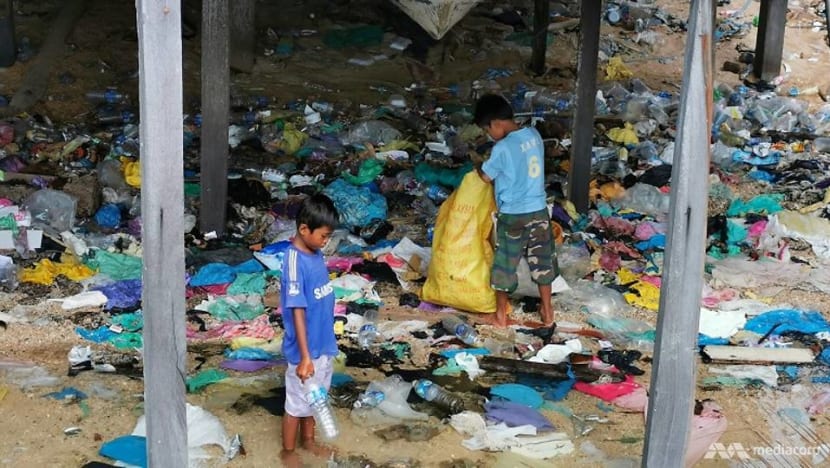
Hassan Suhidin and his younger brother, Khairul, collect plastic, wood and metal pieces along the beach below their home. (Photo: Amir Yusof)
SANDAKAN, Sabah: On most afternoons, Hassan Suhidin and his younger brother, Khairul, would climb down the rickety wooden planks of their village into the rancid shallow waters underneath.
The coastal areas surrounding the island, Pulau Berhala, were covered in garbage, animal carcasses and human waste, due to the absence of a waste management system.
Seemingly oblivious to the murky waters, the brothers would tread around barefooted collecting plastic bottles, wooden planks or metal sheets — anything that could potentially be sold for pocket money.
“We never really got used to the smell, but we don’t have a choice,” said Hassan, 12.
“What do we do with them? We keep them and in time of need when we have no more food, we’ll sell them and use the money,” he added.
The pair are among hundreds of stateless children on Pulau Berhala forced to grow up amid harsh living conditions.
The island, located about 10km off the coast of Sandakan, is home to about 5,000 people. It is not clear how many among them are Malaysian citizens.
In the recent Sandakan by-election, just over 300 people cast their votes.
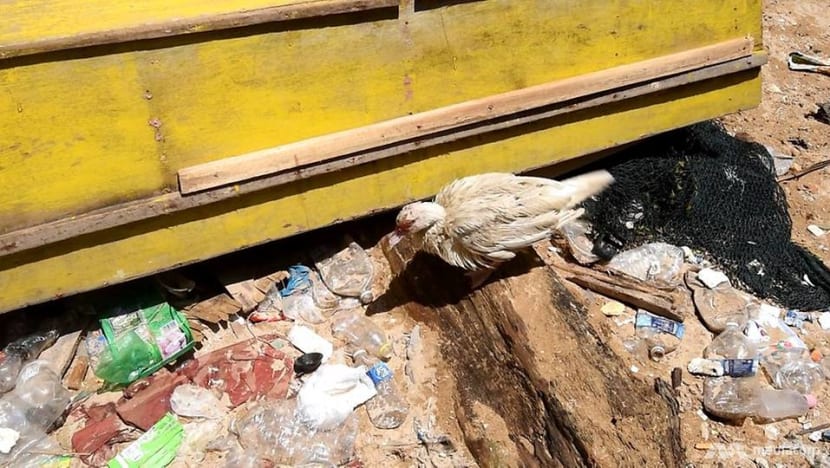
The ethnic Bajau Laut people, or sea gypsies fled to Sabah in the 1970s to escape the war between the Philippine government and the independent movement by the Moro National Liberation Front, resettling in many parts of the state such as Lahad Datu, Semporna and Sandakan.
In the eyes of the Malaysian government, they do not exist.
READ: ‘Second-class citizens?’ - Sabah, Sarawak want clarity on rights as equal partners
A MOTHER'S TEARS
Like their parents or grandparents, the offspring of these migrants have no legal status to work, live, marry or buy a house on Sabah land.
And for Khairul and Hassan’s mother, who only wanted to be known as Asmida, she is constantly reminded that she cannot give her children a better future. This for her, is a source of regret.
Ms Asmida’s husband, Mr Suhidin, works as a fisherman and he earns around RM500 (US$119.28) a month, which is less than half the minimum wage of RM1,100 set by the government.
Her two sons spend their afternoons collecting waste to be sold in Sandakan in case the family’s food situation gets desperate.
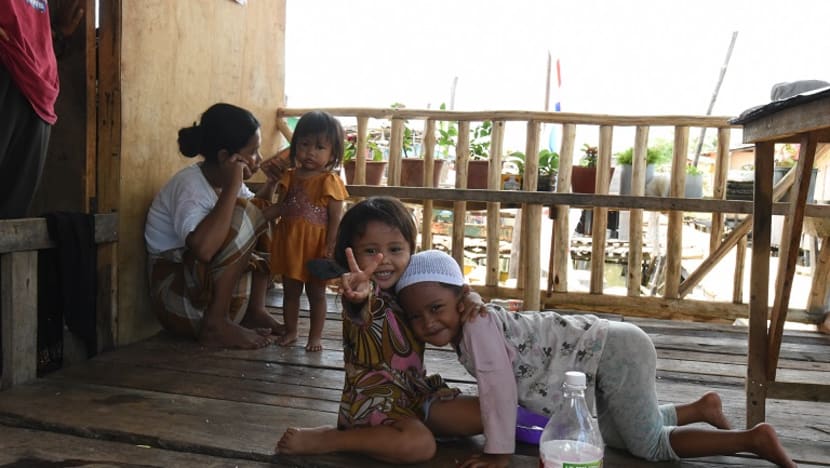
“I never wanted them to be rubbish collectors. I wanted them to go to school, get a good job in the city and live in proper houses,” she said, holding her youngest daughter Bulan in her lap.
Bulan spends her time playing with makeshift toys, cobbled together by plastic bottle caps and discarded cigarette butts her brothers have brought home.
“For Bulan, I want her to be a doctor. But I can’t even promise that I will send her to a proper school. Have I failed her as a mother?” added the 30-year-old as she struggled to hold back tears.
PULAU BERHALA’S ONLY SCHOOL: TWO TEACHERS, 236 STUDENTS
In two years’ time, Bulan will attend the village’s only educational institution, Sekolah 3M. The school was set up by the Malaysian military, which has a strategic base at the island to patrol the waters and protect Sabah from militants coming from southern Philippines.
The school aims to equip stateless children with the basic educational skills of reading, writing and counting, but it does not offer its students the opportunity to take national examinations or to graduate with any certificate that will help them apply for a job.
The school, built in 2010, is attended by students aged four to 17, and is located next to the Pulau Berhala army camp.
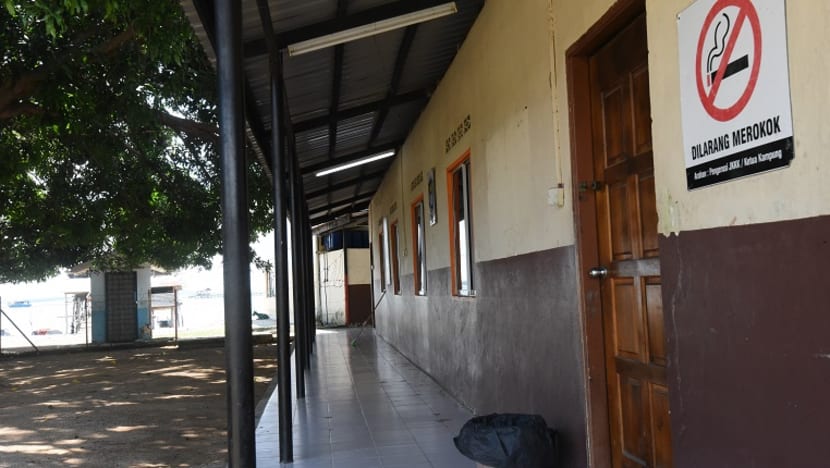
One of the school’s two teachers is Sergeant Muhd Amran Jaafar, who told CNA that his objective was to give the village children just a rudimentary level of education.
“We only teach the basic subjects: the Malay language, maths, Islamic studies. We do teach a bit of English, but just how to read basic words and count. We do not have the resources to do any more than that,” said Mr Amran.
He explained that the ratio of teachers to students was too high, and that it was unrealistic for the school to meet the needs of every single child.
“There are 236 students here and just two teachers. The other soldiers have their own military responsibilities so it’s just us two. But we do our best,” he said.
Sergeant Amran, who has been teaching at the school full-time since 2013, said he realised that his students do not have “bright futures”, as compared to other students with citizenship who travel from the island to the mainland to attend classes.
However, he noted that many of his students are able to apply some of the skills they learn in school in everyday life.
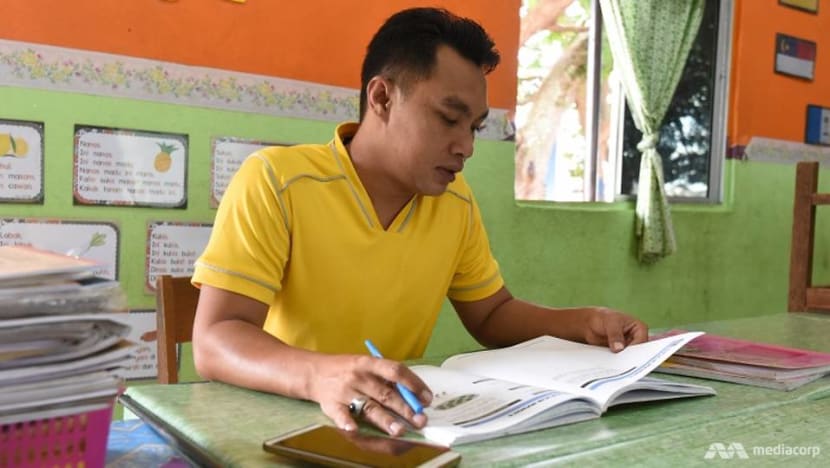
“Their future is not bright, and I am also resigned to the fact that this is the situation. We help them on humanitarian grounds, and I’m proud to see them growing up to be responsible adults,” he said.
When they reach the age of 18, Sergeant Amran said that many of them head to Sandakan to work illegally. Their citizenship status does not allow them to officially hold a job, but they are an important part of Sandakan’s economy, working in industries such as tourism, construction and fishing.
"WE MUST NOT LET THEM ENTER SABAH": CHIEF MINISTER
The trend of undocumented migrants working and living illegally on Sabah soil was a hot button issue during the Sandakan by-election held earlier this month.
During his campaign speech in support of Democratic Action Party (DAP) candidate Vivian Wong, Sabah Chief Minister Shafie Apdal said that the state government must not allow any more migrants from the Philippines to enter illegally and live on Sabah soil.
“We must make sure they are kept away from the border, and not let what happened in the 1970s repeat itself. If they come here and live, life will be difficult for all of us,” he said to loud cheers.
Mr Shafie also joked that he might take a leaf out of US President Donald Trump’s book and build a huge metal gate at the border between the two countries.
“That’s going to be expensive, to build such a gate,” he said, drawing laughter from the crowded.
“But we must cordon them (off) and not allow them to enter Sabah,” he added.
Some residents of Pulau Berhala told CNA that they feel unwelcome when they visit the mainland to buy supplies.
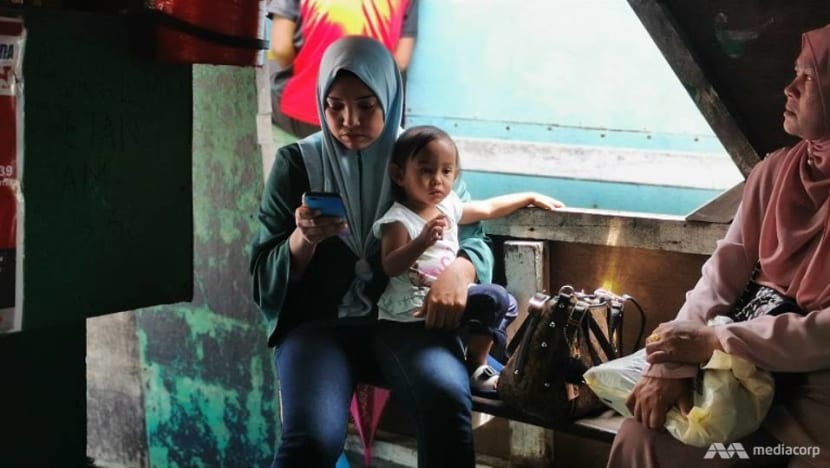
Ms Salbiah Gapur, who goes to Sandakan’s public market with her infant daughter to buy groceries regularly, recalled how they have been insulted by the locals when they visit Sandakan.
The pair make the 20-minute journey in a crammed passenger boat twice a week. Each time they travel, Ms Salbiah holds her daughter’s head near a window for ventilation as the boat’s exhaust fumes fill the passenger cabin.
But her journey typically does not improve when she reaches the mainland.
“(The locals) can easily tell that we are Bajau Laut people, from the way we dress and talk,” she said. “And they don’t hide (their disdain). They call us outsiders and illegal immigrants. My daughter has not learnt to talk and she has already been subjected to such abuse,” said the 26-year-old.
RESIDENTS TURN TO NEW MP
Those on Pulau Berhala hope the authorities can do more to improve their living conditions.
Ms Syamsiah Kamal, who is mother to six young children said the government should resolve the trash problem and the lack of basic electricity for residents.
“We don’t have any trash system. The sea is our garbage dump, and that’s not hygienic for us and the animals we own,” she added.
Sergeant Amran pointed out that the army and non-profit organisations would sometimes organise mass beach clean-up events to help clear up the waste on the coasts of Pulau Berhala.
But according to Ms Syamsiah, the problem is that many of the villagers are not educated on how to put aside their trash responsibly, and there is no system for any official to collect the trash and dispose of them properly.
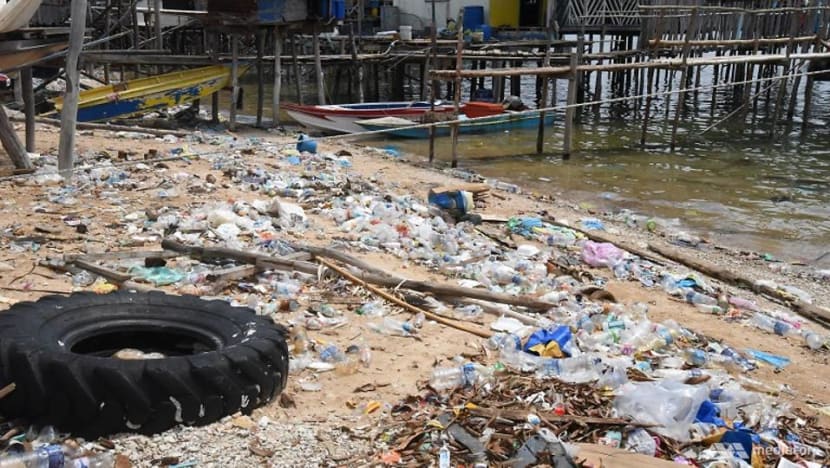
“My children are sick often and every month I have to take them to the clinic on the mainland to see the doctor. I think it’s because of the trash situation,” she said.
Furthermore, the lack of electricity supply to the island means that she has to cook in a makeshift kitchen outside her wooden hut. The small space has beach sand on the floor and a small zinc roof.
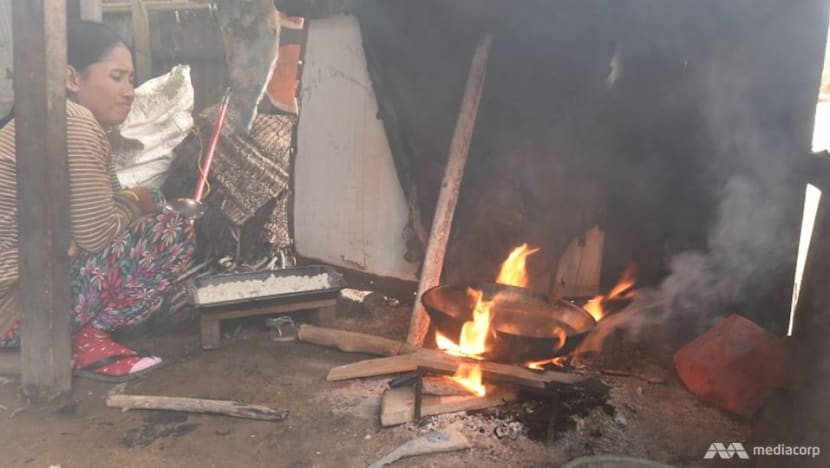
When CNA visited the kitchen, Ms Syamsiah was boiling flour to make porridge for dinner on her wooden stove. But the black soot emanating from the stove left her two children, Naqib and Jumaat, who were playing marbles outside, coughing wildly.
“If I don’t cook this food, they’ll starve. But when I cook, it’s also not a healthy situation with the smoke all over the place,” she said.
“But I’m confident that the Sabah government will help us, if god wills it. We are not citizens, but we are still part of the community after all,” added Ms Syamsiah.
Ms Syamsiah also said she is glad that Ms Wong of DAP won the by-election and is optimistic that more educational facilities will be developed on the island.
On her part, Ms Wong told CNA that she wants to build a community centre on Pulau Berhala, even though not everyone is a Malaysian there.
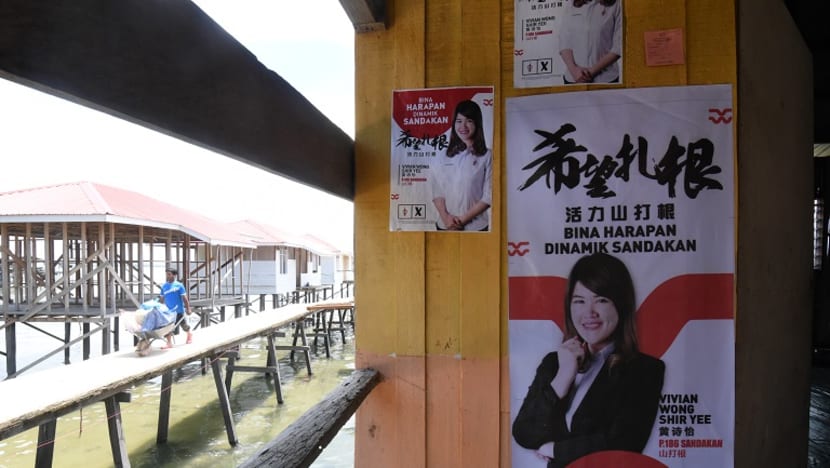
The centre will host classes to teach the children basic school subjects, moral values, as well as life skills, such as how to dispose trash responsibly, said the new lawmaker.
“I do understand that (extending help to the Bajau Laut community) is a very sensitive topic and it is not fair for me to give equal rights to them as the Sabahans who are citizens,” said Ms Wong, who is a former teacher.
“But from a humanitarian point of view, I think they should be given the minimum level of education, so that we don’t form a generation of children that resort to crime like stealing to earn a living in Sandakan.”














